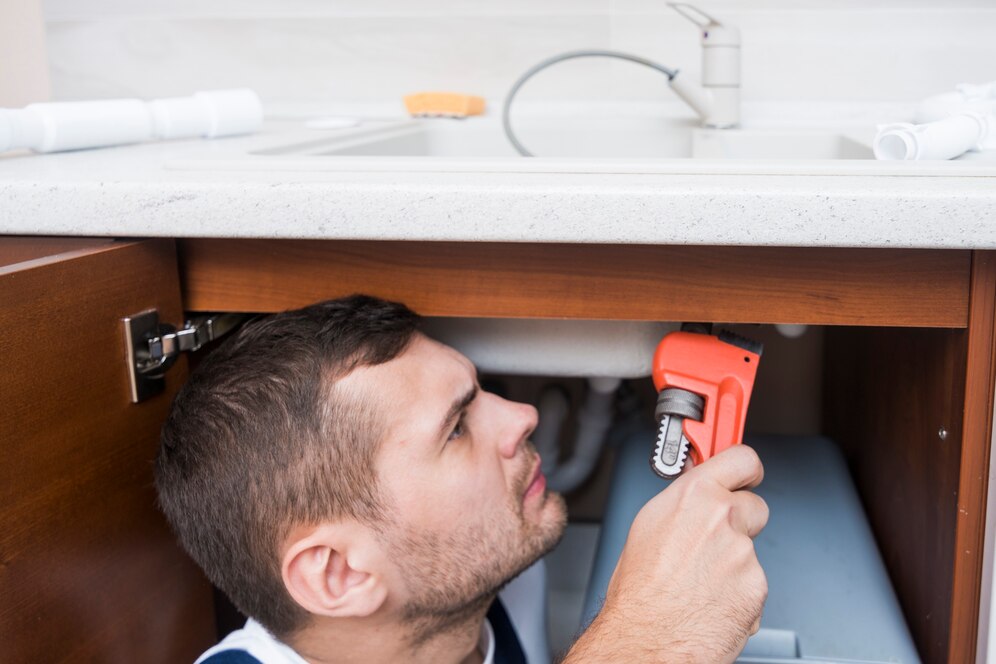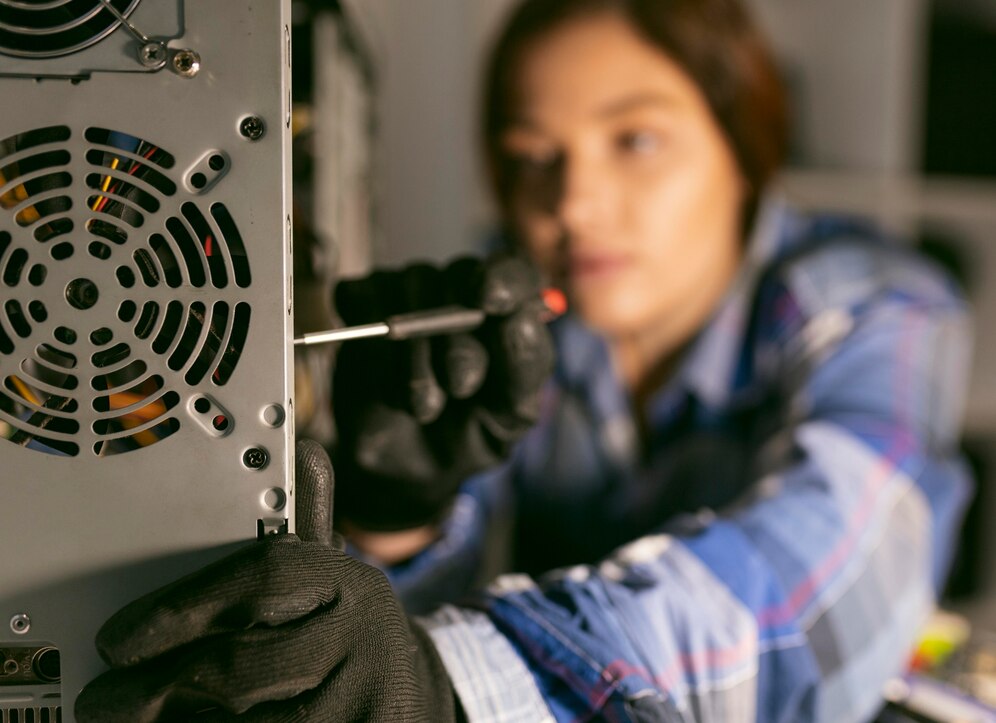Tankless water heaters are known for their efficiency, space-saving design, and long-lasting performance. However, just like any appliance, they may occasionally encounter issues that require repair. Early identifying and resolving tankless water heater problems can prevent further damage, optimize system performance, and ensure an uninterrupted hot water supply. R.A. Nichols Plumbing, Heating & Cooling, a full-service plumbing and heating team, is dedicated to delivering professional expertise and reliable service to Cranbury, NJ, and surrounding neighborhoods, keeping homeowners’ tankless water heaters in top condition.
In this comprehensive article, we will discuss common tankless water heater repair issues and provide guidance on how to identify and troubleshoot them. By understanding these problems, you can maintain your tankless water heater’s efficiency and extend its lifespan while ensuring your household enjoys a continuous and dependable hot water supply.
Erratic or Inconsistent Water Temperature
One common issue with tankless water heaters is fluctuating or inconsistent water temperatures. This can result from various factors, such as blocked heat exchangers, faulty flow sensors, or malfunctioning temperature sensors.
Begin by checking the heat exchanger for any buildup of debris or mineral deposits, which can impede heat transfer and cause fluctuating temperatures. Conveniently, most tankless water heaters have a self-cleaning mechanism, but in some cases, manual cleaning may be necessary. Consider using a water softener to reduce mineral buildup in hard water areas.
Inspect the flow and temperature sensors to ensure they’re functioning correctly and are free from dirt or damage. If troubleshooting these components doesn’t resolve the issue, consult a professional technician from R.A. Nichols to diagnose and repair the problem.
Insufficient Hot Water Supply
If you find your tankless water heater producing an inadequate hot water supply, a few possible causes include an undersized unit, a dirty or blocked heat exchanger, or crossed connections between the cold and hot water lines.
First, assess your household’s hot water demand and ensure that your tankless water heater is appropriately sized to meet those needs. If you’ve recently added new appliances or use multiple fixtures simultaneously, you may require a larger unit. Check the heat exchanger for debris or mineral deposits and clean it if necessary. Confirm that the cold and hot water lines are properly connected without any crossover, which could create a mixing effect and reduce the overall hot water temperature.
If you’re unable to pinpoint the issue or your hot water supply remains insufficient, contact a professional plumber from R.A. Nichols Plumbing, Heating & Cooling for assistance.
Ignition or Flame Failure
Ignition or flame failure in your tankless water heater may result from a variety of factors, such as gas supply issues, clogged air pathways, or faulty igniters. If your unit’s “ignition failure” or “flame failure” error code is displayed, immediate action is required.
Begin by examining the gas supply to ensure it’s functioning correctly and providing the appropriate gas pressure. Check for obstructions in the air pathways, such as debris or insect nests, which could hinder airflow and cause combustion issues. Inspect the igniter’s wiring for loose or damaged connections and confirm the igniter’s proper function. If the problem persists, enlist the help of a professional technician from R.A. Nichols Plumbing, Heating & Cooling to address the issue promptly and safely.
Mineral Buildup and Scaling
Mineral buildup and scaling are common occurrences in tankless water heaters, particularly in areas with hard water. Over time, minerals like calcium and magnesium can accumulate on the heat exchanger, dramatically reducing unit efficiency and potentially causing it to overheat.
Regular maintenance and descaling your tankless water heater are crucial for preserving its efficiency and performance. The descaling process involves circulating a vinegar solution through the unit to dissolve the mineral deposits. Be sure to consult your owner’s manual for specific descaling instructions, as different models might have unique requirements.
To prevent frequent scaling, consider installing a water softener or conditioner to reduce the mineral content in the water supply, thus minimizing buildup on the heat exchanger.
System Error Codes and Electronic Malfunctions
Modern tankless water heaters often have built-in diagnostic systems that display error codes in case of a malfunction. These error codes can indicate various issues, from improper venting and gas supply problems to temperature sensor errors and electrical component failures.
If your tankless water heater displays an error code, refer to your owner’s manual for a description of the problem and recommended steps for resolution. While some issues might be easily fixed, such as resetting a tripped circuit breaker or adjusting the thermostat, others could demand professional expertise.
If you’re not confident in addressing the issue yourself or the problem persists, contact a professional technician to diagnose and repair the problem competently and safely.
Leaking or Dripping
Leaking or dripping from your tankless water heater can be both inconvenient and potentially costly if not addressed promptly. Leaks can emerge from several sources, including loose or damaged connections, faulty or aging components, or even condensation buildup.
Inspect your unit for visible leaks, focusing on the connections, joints, and valves. Tighten any loose connections and replace damaged or corroded components. Check your venting system for proper installation and function, as condensation issues could arise from improperly sized or installed venting.
Reach out to a professional plumber if you’re unable to locate the source of the leak or need assistance in repairing a damaged component.
Efficient Tankless Water Heater Solutions from R.A. Nichols Plumbing, Heating & Cooling
Understanding how to identify common tankless water heater repair issues plays a significant role in ensuring optimal performance, reliability, and longevity for your system. By staying informed about problems like inconsistent water temperature, insufficient hot water supply, ignition failure, mineral buildup, system error codes, and leaks, you can take timely action to resolve these issues and maintain an efficient and dependable hot water supply.
If you encounter any of the abovementioned tankless water heater repair issues or require expert assistance, the skilled technicians at R.A. Nichols Plumbing, Heating & Cooling are here to help. Our team of professionals is dedicated to providing exceptional service, expertise, and unparalleled customer satisfaction. Don’t let common tankless water heater problems disrupt your comfort—contact our plumbers in Cranbury, NJ, today to ensure your system remains in peak condition.









